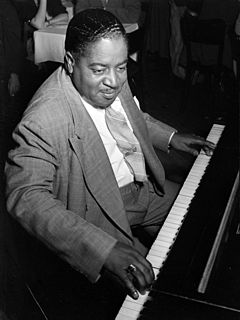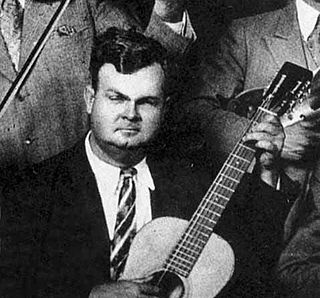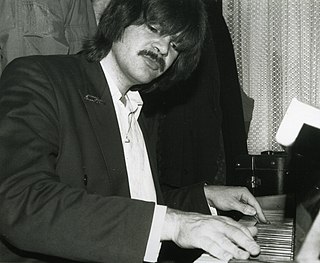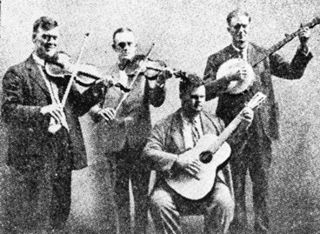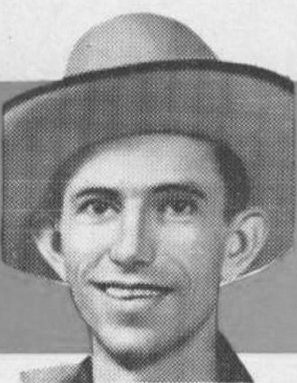
John Alexander Barfield (3 March 1909 - 16 January 1974) was an American country and old-time music performer, best known for his 1939 recording of "Boogie Woogie", the first country boogie.

The United States of America (USA), commonly known as the United States or America, is a country composed of 50 states, a federal district, five major self-governing territories, and various possessions. At 3.8 million square miles, the United States is the world's third or fourth largest country by total area and is slightly smaller than the entire continent of Europe's 3.9 million square miles. With a population of over 327 million people, the U.S. is the third most populous country. The capital is Washington, D.C., and the largest city by population is New York City. Forty-eight states and the capital's federal district are contiguous in North America between Canada and Mexico. The State of Alaska is in the northwest corner of North America, bordered by Canada to the east and across the Bering Strait from Russia to the west. The State of Hawaii is an archipelago in the mid-Pacific Ocean. The U.S. territories are scattered about the Pacific Ocean and the Caribbean Sea, stretching across nine official time zones. The extremely diverse geography, climate, and wildlife of the United States make it one of the world's 17 megadiverse countries.
Country music, also known as country and western, and hillbilly music, is a genre of popular music that originated in the southern United States in the early 1920s. It takes its roots from genres such as folk music and blues.
Old-time music is a genre of North American folk music. It developed along with various North American folk dances, such as square dancing, clogging, and buck dancing. It is played on acoustic instruments, generally centering on a combination of fiddle and plucked string instruments, as well as the mandolin.
He was born in Tifton, Georgia, and in his youth played guitar on street corners with his brother Coot. They recorded for Columbia Records in Atlanta in 1927, but the recordings were not released. Soon afterwards, Johnny Barfield became acquainted with Clayton McMichen and Bert Layne of the Skillet Lickers, touring with the group and recording with some of its offshoots, including McMichen's group, the Georgia Wildcats. By 1932 he was performing both solo, and as a member of Layne's band. In 1939, he won a recording contract with Bluebird Records, and released his version of "Boogie Woogie", a song derived from "Pinetop's Boogie Woogie" recorded in 1928 by Pinetop Smith. Barfield's song is considered the first country boogie, and became popular on jukeboxes. [1] [2]

Tifton is a city in Tift County, Georgia, United States. The population was 16,869 at the 2010 census. The city is the county seat of Tift County.

Columbia Records is an American record label owned by Sony Music Entertainment, a subsidiary of Sony Corporation of America, the North American division of Japanese conglomerate Sony. It was founded in 1887, evolving from the American Graphophone Company, the successor to the Volta Graphophone Company. Columbia is the oldest surviving brand name in the recorded sound business, and the second major company to produce records. From 1961 to 1990, Columbia recordings were released outside North America under the name CBS Records to avoid confusion with EMI's Columbia Graphophone Company. Columbia is one of Sony Music's four flagship record labels, alongside former longtime rival RCA Records, as well as Arista Records and Epic Records.

Atlanta is the capital of, and the most populous city in, the U.S. state of Georgia. With an estimated 2017 population of 486,290, it is also the 38th most-populous city in the United States. The city serves as the cultural and economic center of the Atlanta metropolitan area, home to 5.8 million people and the ninth-largest metropolitan area in the nation. Atlanta is the seat of Fulton County, the most populous county in Georgia. A small portion of the city extends eastward into neighboring DeKalb County.
Barfield recorded again in 1940 and 1941, but failed to repeat his earlier success. He continued to perform for several years. He died in 1974, aged 64.


